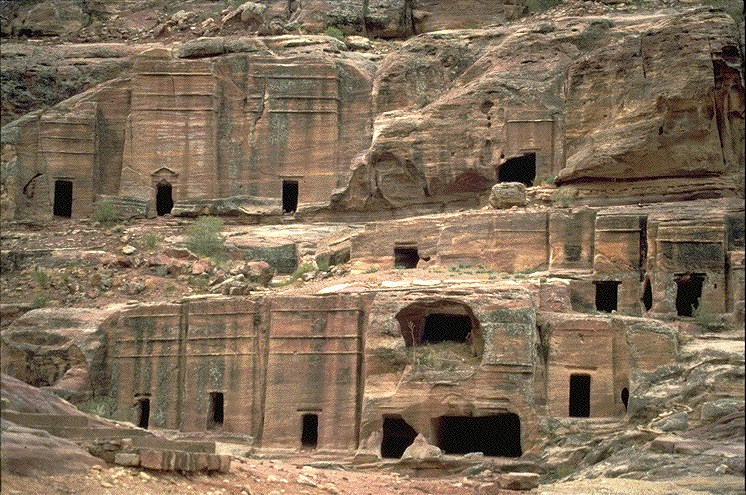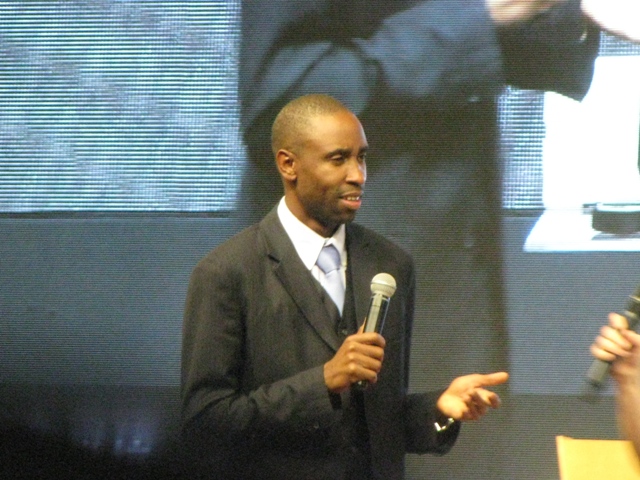
1. Introduction
Obadiah is a prophecy about the total destruction of the Edomites, enemies of GOD’s people. Other than Egypt, Assyria, and Babylon, the most number of prophecies in the Bible was about Edom.
The Edomites were the descendants of Esau, the elder twin brother of Jacob. Both were grandsons of Abraham. Esau took a light view of his birthright as the eldest son. He sold it to Jacob for a bowl of food (Gen 25:29-34). By doing this, he gave up the blessing that his descendants would have inherited. Scripture considers Esau the equivalent of a fornicator or a profane person (Heb 12:16&17).
Enmity then developed between Esau’s descendants and Jacob’s, the Israelites. When Israel was returning to the Promised Land from Egypt during the 15th century BC, Edom refused Israel the right of passage through their lands (Num 20:14-21). GOD however, instructed Israel never to be hostile to Edom (Deut 2:4&5; 23:7). Edom nonetheless invaded Jerusalem seven times from the 10th to 6th centuries BC. Scholars conclude generally, that Obadiah was referring to the invasion of Jerusalem in either 850BC or 586BC. The Arabs later forced the Edomites into the area just south of Judea. The territory was therefore called Idumea.

Esau, selling his birthright to Jacob for a bowl of food
2. The Pride of Edom (v2-4)
Pride deceives (v3) and leads to a fall (Prov 16:18). The Edomites lived in the sides of high, rocky mountains. They felt unassailable. Their stronghold was Mount Seir (from rock=Sela), translated Petra in Greek. In the south the mountain peaks rose up to 5,700 feet. Like eagles whose nests were high up in the sky, the Edomites felt themselves greater than the nations surrounding them.
3. The Sacking of Edom (v 5-9)
The sacking of Idumea would be total and unsparing (v5). Diodorus of Sicily, in his “Universal History” compiled before 60 BC, recorded that the “hidden treasures” of the Edomites were stored in vaults built into the rocks. Their “hidden treasures” would now be ransacked and be carted away completely.
The Edomites were also famed for their wisdom. Teman (v9) was their capital. It was named after their founder Teman, a son of Eliphaz. Eliphaz was a son of Esau (Gen 36:2, 4&11). One of Job’s councillors on wisdom was from Teman: he too was named Eliphaz (Job 2:11).
The mighty men of Edom would be dismayed by GOD’s destruction (v8&9).Their wisdom would not enable them to understand the complete slaughter of their own people.

Mount Seir/Petra
4. Edom’s attacks on Judea (v10-14)
Shame would descend on Edom. She would be cut off for good. When Judea was invaded, Edom had merely looked on at their brother Jacob being attacked, offering no assistance. After Jerusalem’s fall, Edom participated in securing the spoils of the city. The Edomites even waited at crossroads to cut off refugees and also surrendered the distressed Jews to the enemy. Edom rejoiced when the Jews were destroyed. They boasted in vain about the suffering of Judah.
5. End of Edom’s lineage (v15-16; 18b-21)
Even Edom’s allies would sack its cities totally. The Edomites would be expelled from their own territory. Peace-loving nations would also attack them. Those nations that depended on Edom for a living would also entrap her (v7).She would not have a single ally.
GOD’s day of judgement on all nations is near. They would be repaid in the same way as they had dealt with other nations (v15). As Edom had plundered GOD’s holy place, she would, like other plundering nations, cease to exist. There would be no survivors. They would be like stubble—the short stalks after a harvest ready for the fire (v18).

6. Deliverance of Israel and Judah (v17 &18a)
Israel’s Mount Zion (in Jerusalem) would be delivered to GOD’s people and holiness would prevail when this happened. Israel and Judah would be restored with their possessions. Both would be united (Joseph was a branch of Israel) as fire and flame to destroy the remnant of Edom.
Jews living in various parts of Judea would return to the lands occupied by their enemies. Exiled Judeans living in Zarephath (modern-day Lebanon) and Sepharad (in Sardis, Media or Spain) would return to take over the mountains of Edom.
Judgement would be from Mount Zion by various deliverers/ leaders. GOD’s kingdom would then be established. Judgment against the Mount of Esau and all that it represented would take place.
7. The End of Edom
Edomite kings (the Herod dynasty) ruled Jerusalem for nearly 100 years from 78 BC. They worked hand-in hand with the conquering Romans. They attempted the murder of the infant Jesus. John the Baptist was executed by their king. The early church in the Book of Acts was persecuted by the Herod family. However, from 64 AD, the poor relationship between Rome and Jerusalem intensified into open war with each other. The prophecy of Obadiah was completed in 70 AD: the Edomites were wiped out as a race by the Romans (their allies) with the destruction of Jerusalem.

8. Lessons from Obadiah
The prophecy through Obadiah teaches us the following:
- Christians are children of GOD’s promise through Christ: we should not take this birthright lightly and trade it for the lusts of the eyes and the flesh, and the pride of life(1 Jn 2:15&16)—that amounts to fornicating or being profane;
- jealousy, rivalry, enmity and discrimination are unacceptable to GOD: loving our enemies is a benchmark of a Christian (Matt 5:44);
- the rulers of the world govern according to their ethos and not according to the predestined plan of GOD: when under siege, christians should be confident of the relationship in Christ and not in circumstances– Christ is our compass and not the human events we analyse;
- GOD is not unaware nor uninvolved in the events of the nations; He would terminate their evil actions as He gives them more than ample time for repentance;
- GOD has set a judgement day: the condemned and the saved would be segregated and judgement would be executed once and for all.
NOTE: Tony Dibble worships at Endeavour Christian Gathering, in Perth, Western Australia. Prior to this, he was attending the Church of Our Holy Saviour (COHS), in Labuan, East Malaysia where he was a cell group leader and presented a paper at a seminar on the family. He also did occasional stand-in preaching at COHS. When in Kuala Lumpur, he worships and preaches at Faith Oasis Fellowship (FOF) Subang Jaya, Selangor.
|Share The Good News|




Leave a Reply